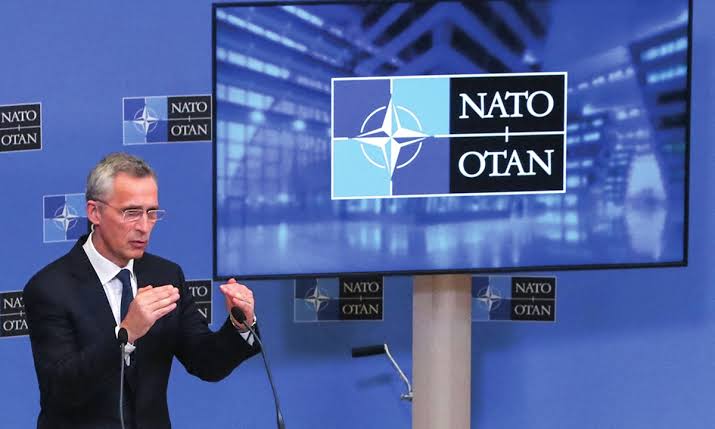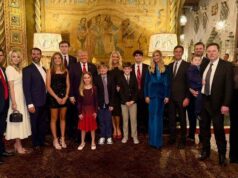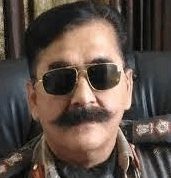Stoltenberg’s legacy for his successor – a messy, disunited NATO

NATO Secretary General Jens Stoltenberg ended his term of office on Tuesday, officially passing the baton of the group’s leadership to former Dutch prime minister Mark Rutte. Media reports suggest that Rutte’s main task after taking office is to keep the transatlantic military alliance united amid the conflict in Ukraine and the upcoming US presidential election.
During the 10-year term of Stoltenberg, it can be clearly seen how NATO, a military bloc that is supposed to be “defensive,” evolved into a proactive troublemaker, constantly filling the region and world with crises, turmoil and conflicts. Overall, based on NATO’s provocational and destructive efforts, we have to give the bloc’s development over the past decade a completely negative rating.
One of NATO’s major “contributions” to the world is bringing war back to Europe – to the doorstep of most NATO members. The root cause of the Russia-Ukraine conflict is NATO’s obstinate eastward expansion, without taking into account Moscow’s legitimate and reasonable security concerns. As a result, it is obvious that there is now a deep division in Europe’s security, and the continent has become a powder keg.
Besides, in Stoltenberg’s tenure, the transatlantic military bloc unprecedentedly enhanced the efforts to extend its destabilizing tentacles to the Asia-Pacific region. To most regional countries, this fully exposes the group’s wild ambition of meddling in regional affairs and creating military tensions with its fear mongering narrative.
Another worrisome development under Stoltenberg is how NATO, over the past decade, increasingly acted as a global military enforcer for the US globally, amplifying Washington’s political influence around the world. Rather than being a leader of the military alliance, Stoltenberg is widely viewed more as a parrot that keeps repeating Washington’s words and actions, an implementer of the US’ will and a puppet who actually can’t control the future of NATO.
In fact, what Stoltenberg has left for Rutte, the next NATO leader, is a complete mess – The bloc is facing multiple challenges at the same time.
Over the years, disunity within NATO has grown significantly. Alignment with Washington’s policies often conflicts with the security interests or concerns of many European members in the alliance.
For instance, as war-weariness across the continent ferments and domestic issues become prominent, European countries are questioning if they should continue to provide military aid and financial support to Ukraine in this war at their own expense.
Regarding the issue of the bloc’s expansion in the Asia-Pacific, which is clearly targeted at China, more NATO members believe that the group’s strategic focus should be in Europe, but not in the Asia-Pacific region. Confronting and containing Beijing tops Washington’s strategic agenda but not Europe’s.
In addition, for NATO under Rutte, there is a more urgent threat, that is, the future direction of US politics after the US presidential election next month. The US is not only the “soul” of NATO, but also its main financial provider.
However, now it seems that an increasing number of people within the US are discontent with how much money their country has spent on alliances and the defence of other countries. Therefore, with the US seeing changes in politics at home, there is a risk that the country may reduce its input into NATO.
Experts predict that Rutte at the helm will not bring much changes to NATO’s general strategic plan, which includes urging members to increase their military budgets, confronting Russia in a more aggressive manner and expanding NATO’s influence around the globe, especially in the Asia-Pacific.
Rutte, as a European politician, will make greater efforts to emphasize the balance between Europe and the US within NATO; yet, NATO’s own structure determines that the leader needs to act in accordance with the wishes of the US when planning the operation of the group.
Another major task Rutte as the new NATO leader has to deal with is how he navigates the transatlantic alliance’s relations with China. Blindly following Washington’s steps, his predecessor tried to create an Asia-Pacific version of NATO, while repeatedly making aggressive statements about China. It is under the spotlight whether Rutte will take the same approach toward China.
With many uncertainties to come for NATO, which just celebrated its 75th anniversary this summer, a new NATO secretary general is unlikely to inject new blood into this outdated alliance. It seems inevitable that NATO will continue to face growing divisions and conflicts rather than achieving greater unity and cohesion.




